04 Nov 2025
“The fandom community is a dynamic, vibrant, and complex entity. It embodies resistance and creativity, yet it also possesses a darker side.”
Power in the entertainment industry is decisively shifting from corporate boardrooms to dynamic fan communities, according to leading academics and creators at the “Fan Cultures in Flux” symposium, held on October 17 at Xi’an Jiaotong-Liverpool University.
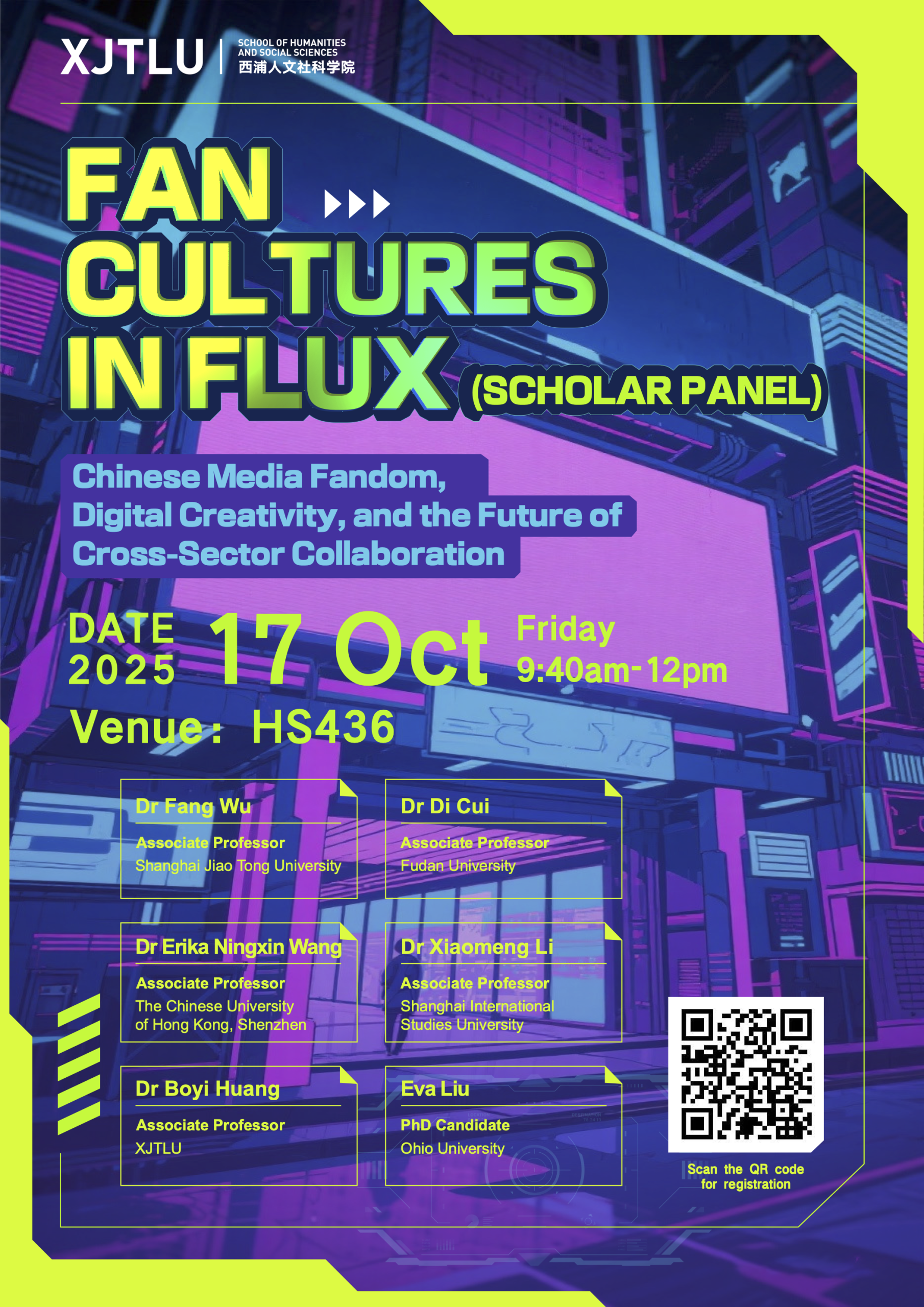
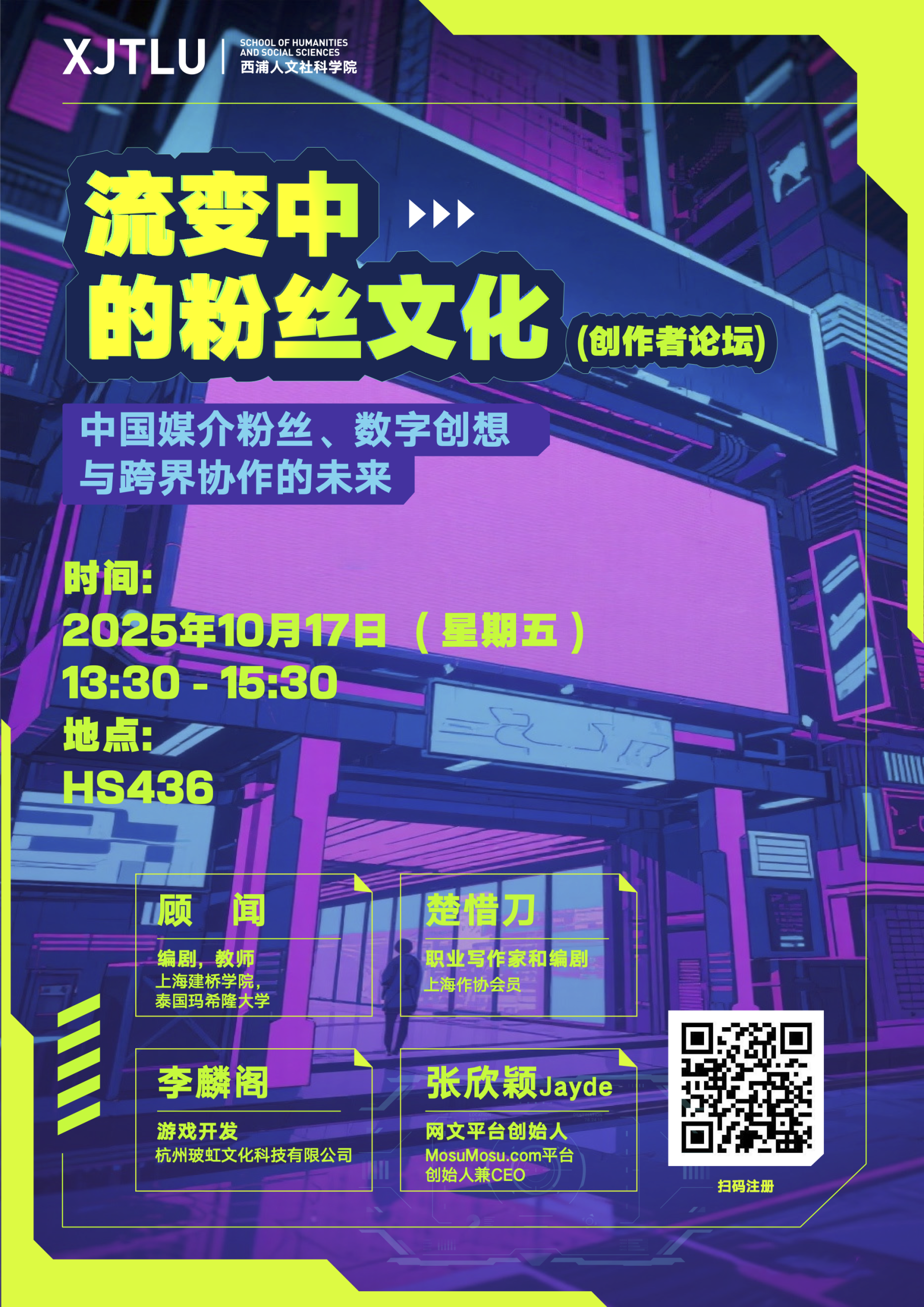
This one-day symposium had two parts: the academic panel in the morning and the creator forum in the afternoon. Participants highlighted the transformation of media fans from a passive audience into active co-creators and curators of content who are reshaping creative industries.
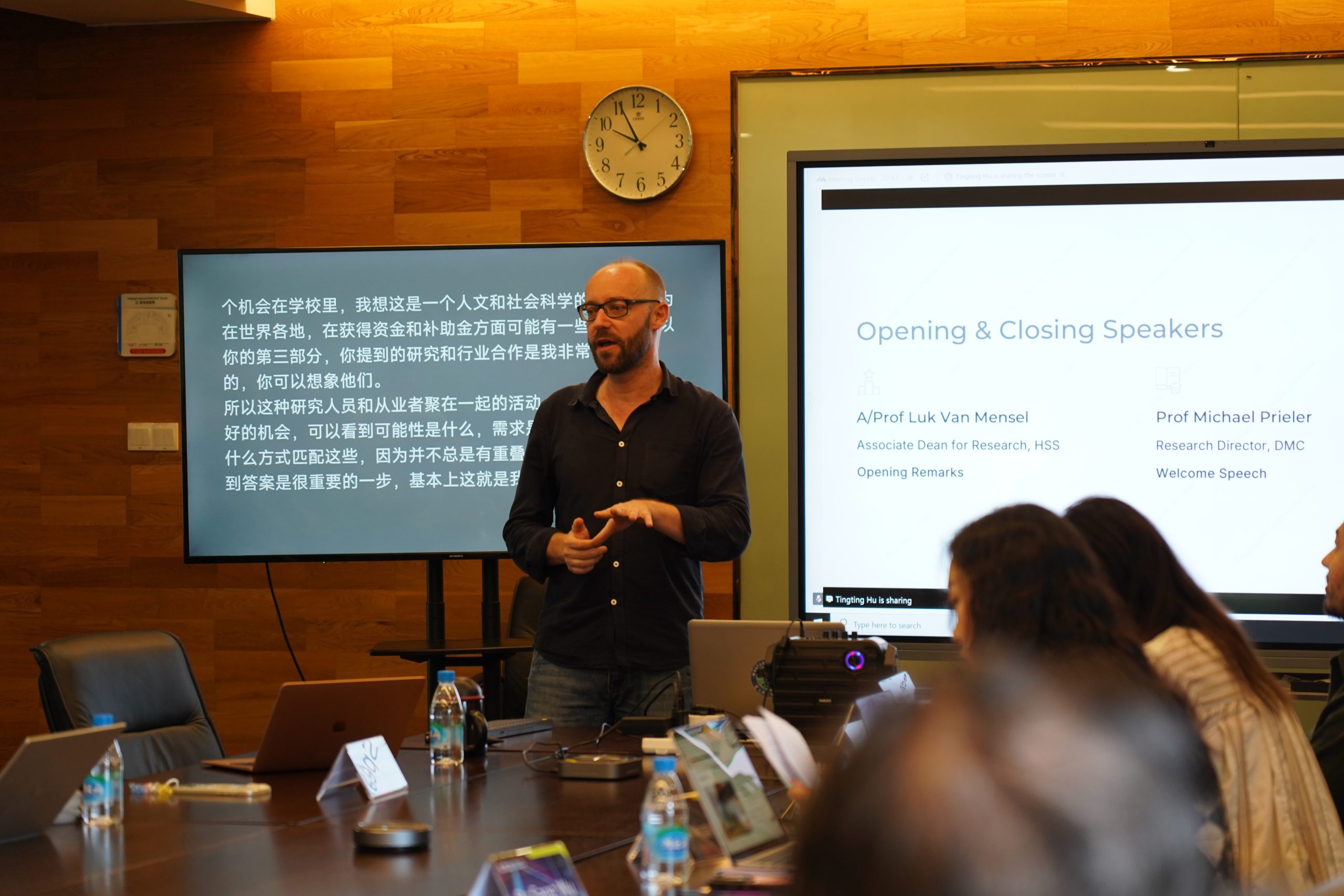
Dr Luk Van Mensel
In his opening remarks, Dr Luk Van Mensel, Associate Dean for Research in the School of Humanities and Social Sciences, emphasized the event’s unique value in bridging academic research with industry to foster future collaboration.
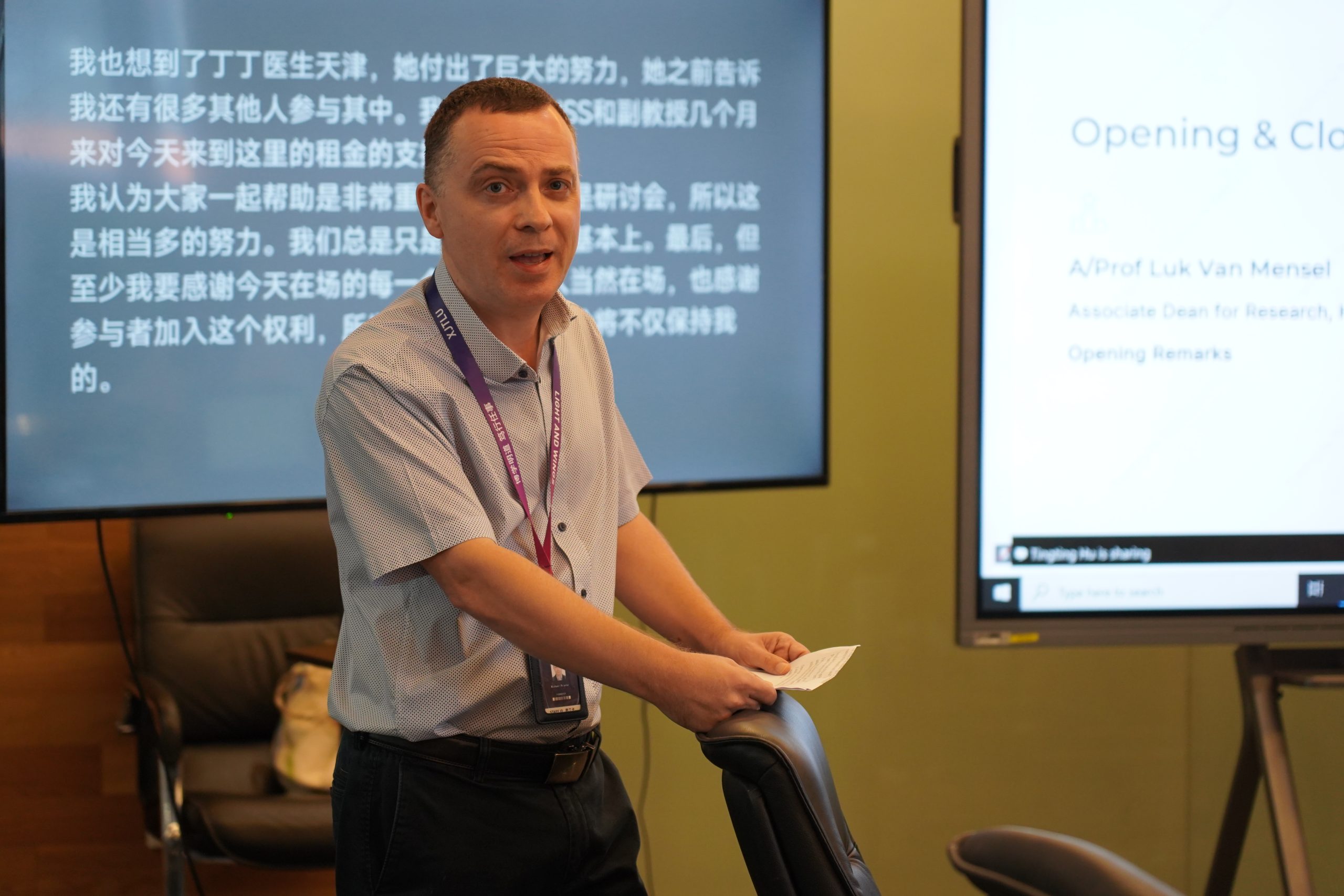
Professor Michael Prieler
Professor Michael Prieler, Research Director of the Department of Media and Communications, observed in his welcome speech: “Fans are no longer just an audience; they have become participants. The traditional boundaries between creator and consumer have changed dramatically.”
The volume is primarily edited by Dr Tingting Hu (collaborated with Dr Fang Wu), the event’s organizer and an Assistant Professor at the Department of Media and Communication. “It is the first academic book focusing on fandom studies in the Asia-Pacific,” she said. “It brings together emerging young scholars from across this region,” such as Australia, China, Indonesia, and Singapore.“A core objective of the volume is to decentralize the traditionally Western-centric focus of fandom studies,” she added.
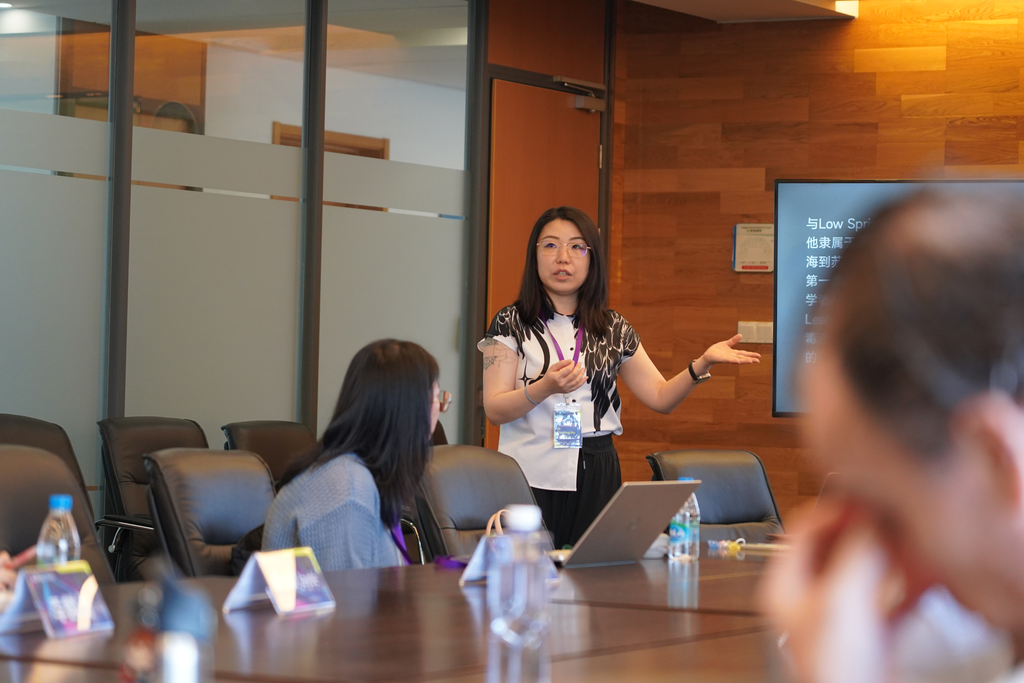
Dr Tingting Hu
Scholars on the panel pointed to this power shift across diverse cultural domains. Eva Liu, a PhD candidate from Ohio University, highlighted the transcultural nature of modern fandom through idol shows. “We see fans defending foreign contestants not out of political resistance, but through deep emotional attachment, creating spaces for cosmopolitan imagination,” she noted.
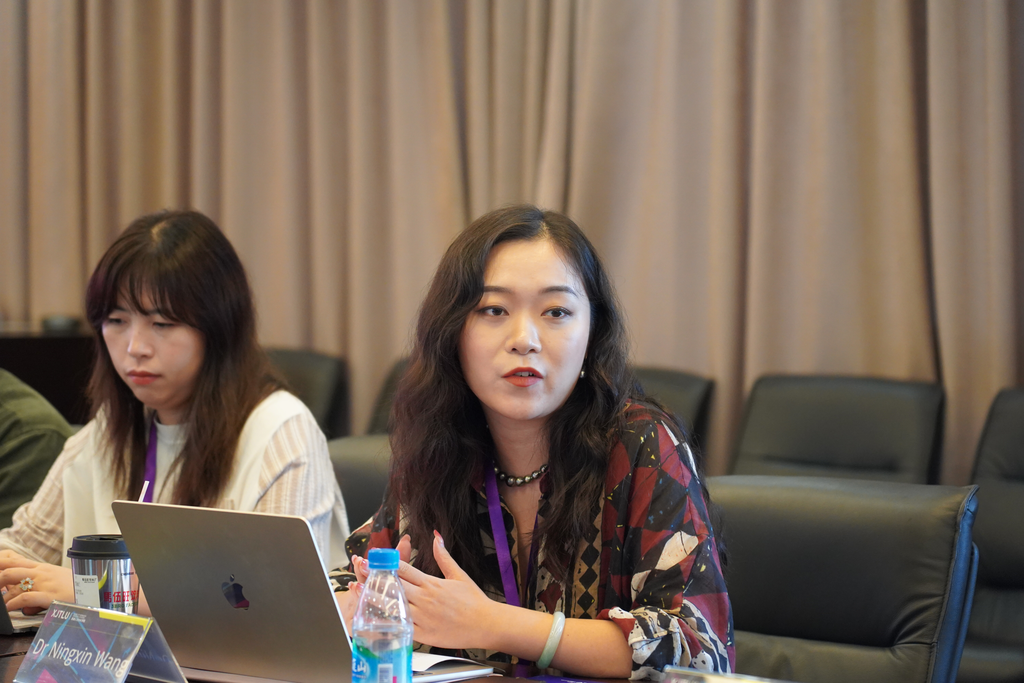
Dr Erika Ningxin Wang
The digital reinvention of tradition formed another key focus of the symposium. Dr Erika Ningxin Wang, an Assistant Professor at the Chinese University of Hong Kong, Shenzhen, shared her ethnographic research on Hanfu, the traditional clothing of the Han Chinese people. She reframed its revival as “platform nostalgia,” a phenomenon that continually reinvents tradition through digital platforms like Douyin.
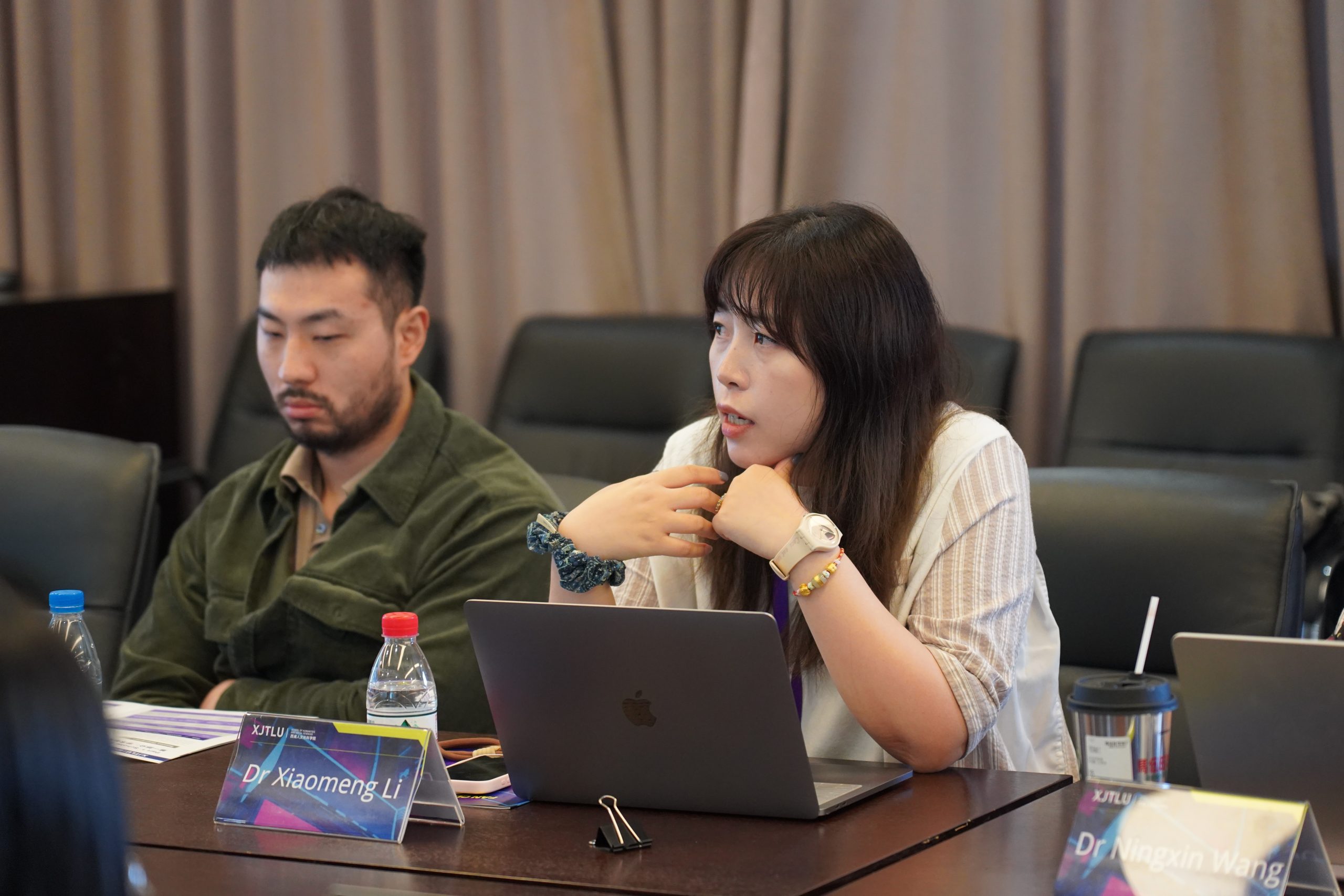
Dr Xiaomeng Li
Through her observation of Chinese female football vloggers based in England, Dr Xiaomeng Li, an Assistant Professor at Shanghai International Studies University, revealed their “dual obligation” to prove authenticity to local English fans while performing cultural belonging for their online Chinese audience.
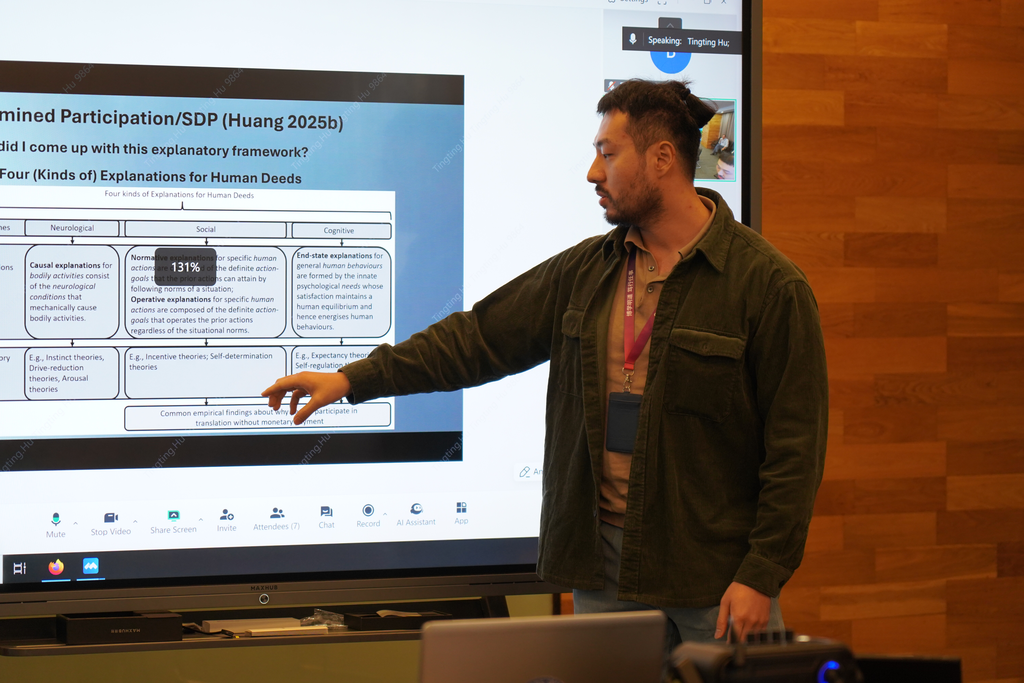
Dr Boyi Huang
Drawing on the theories in translation studies, Dr Boyi Huang, an Assistant Professor at the Department of Literary and Translation Studies, XJTLU, presented a trend in which people use unpaid translation work to fulfill unmet psychological needs such as competence, relatedness, and autonomy, treating the task as a form of mental well-being.
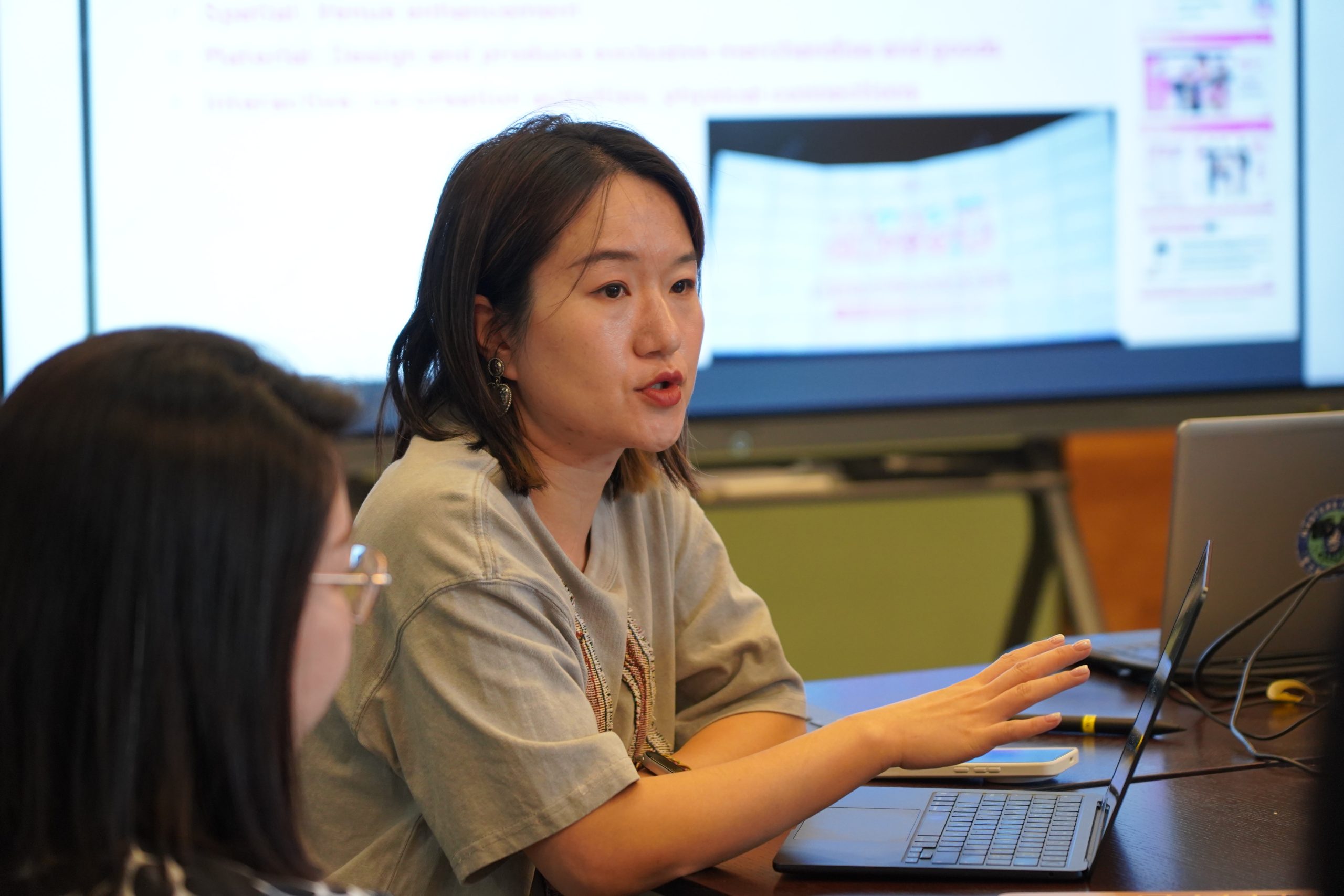
Dr Fang Wu
Dr Fang Wu, an Associate Professor at Shanghai Jiao Tong University, revealed that fans are actively building physical communities to counter digital fatigue, with “over 200 self-curated offline events” created monthly in Shanghai alone. “Faced with platform ‘data fever’ and regulatory constraints, fans are creating physical havens,” she remarked.
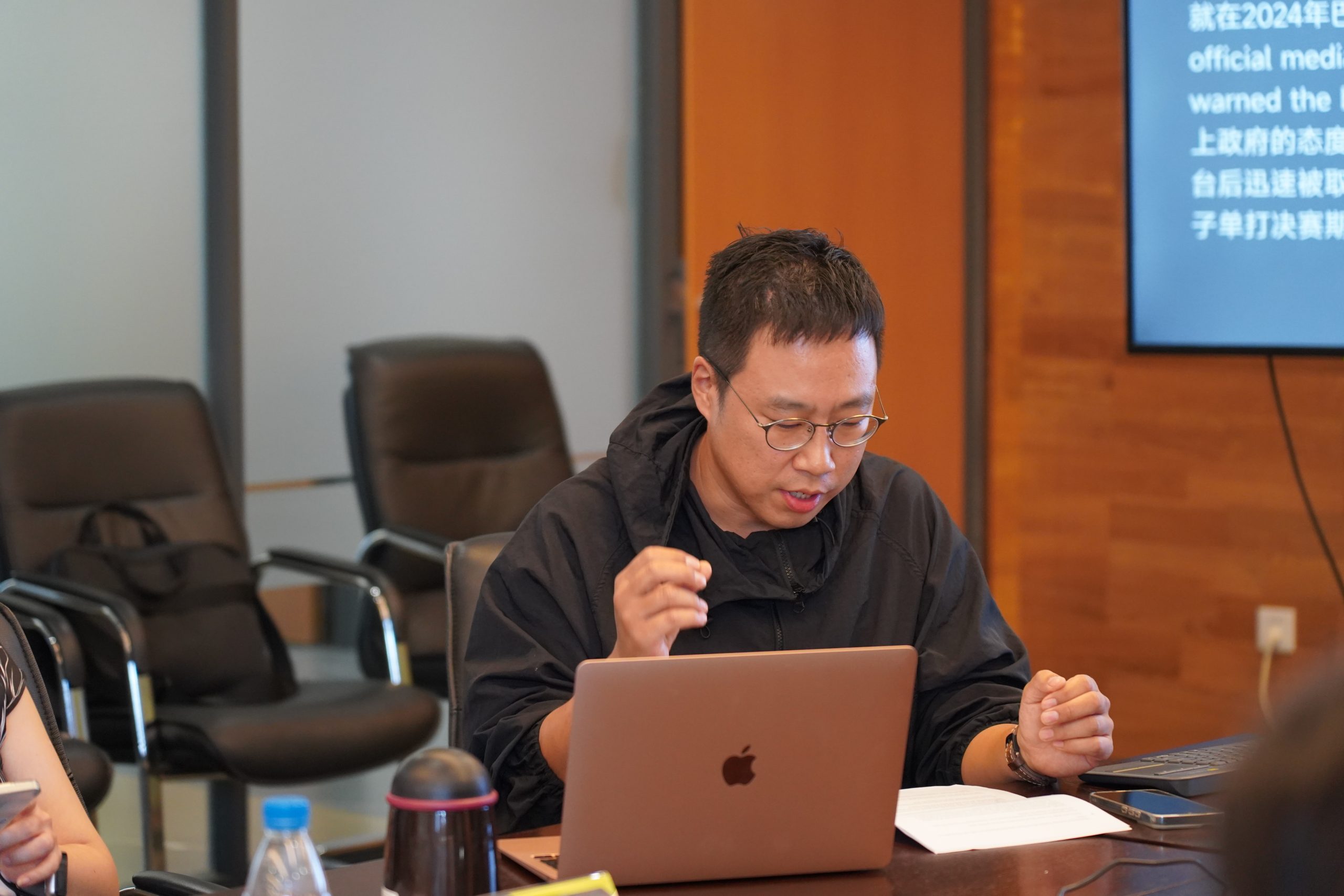
Dr Di Cui
Dr Di Cui, an Associate Professor at Fudan University, noted that the “golden age” of table tennis fandom from 2013 to 2023 was “the primary driver” in transforming the sport from a state-sponsored activity into a commercial spectacle. He also highlighted the paradox in which officials often condemn “toxic fandom” while simultaneously leveraging fan-driven commercialization.
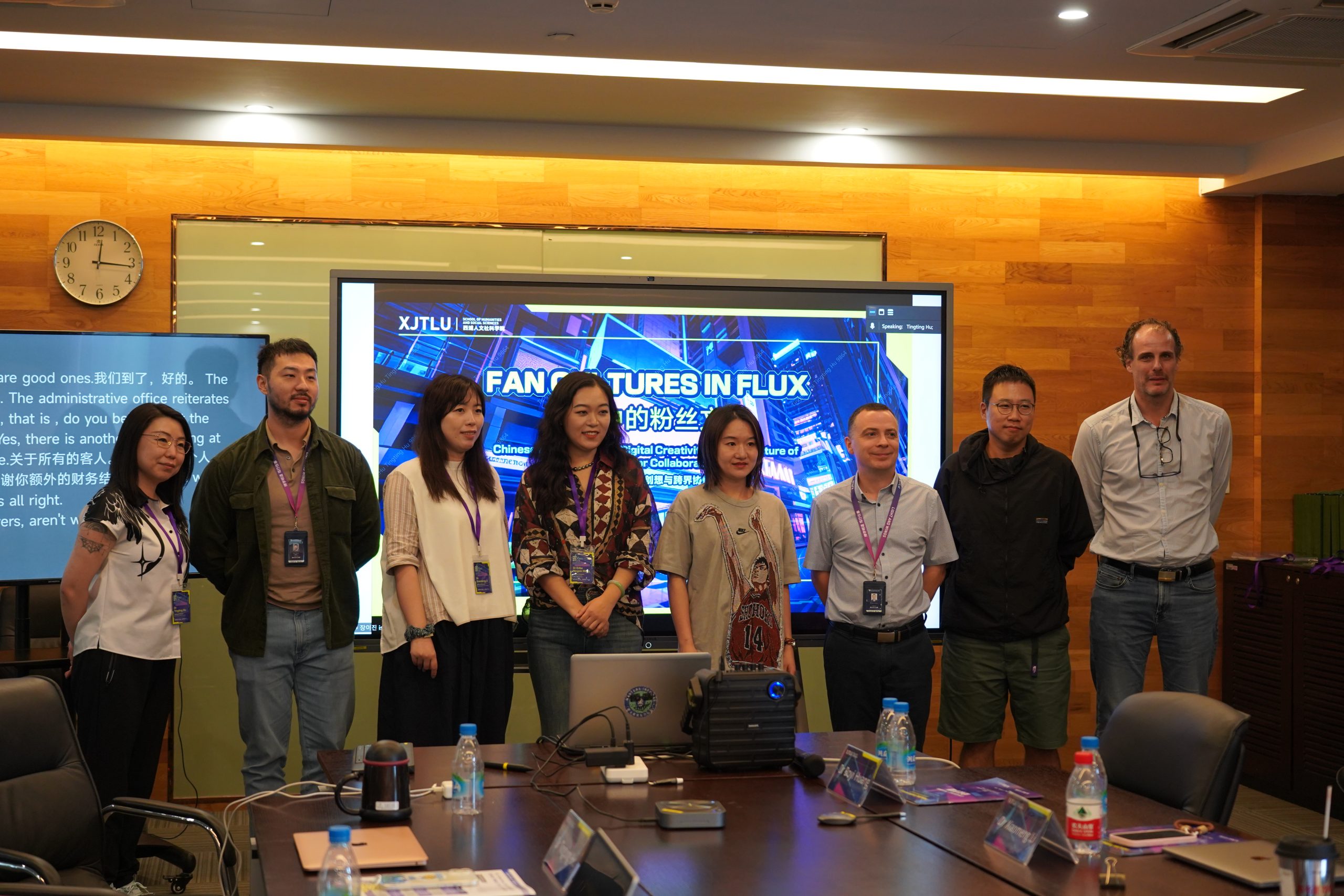
The group photo of the academic panel
The afternoon creator forum brought together four distinguished media practitioners including novelist, playwright, game designer and AI platform developer. These speakers provided ground-level confirmation of insights from scholar panel, highlighting practices such as fan engagement, collaborative creation, and audience-centered cross-media creativity.
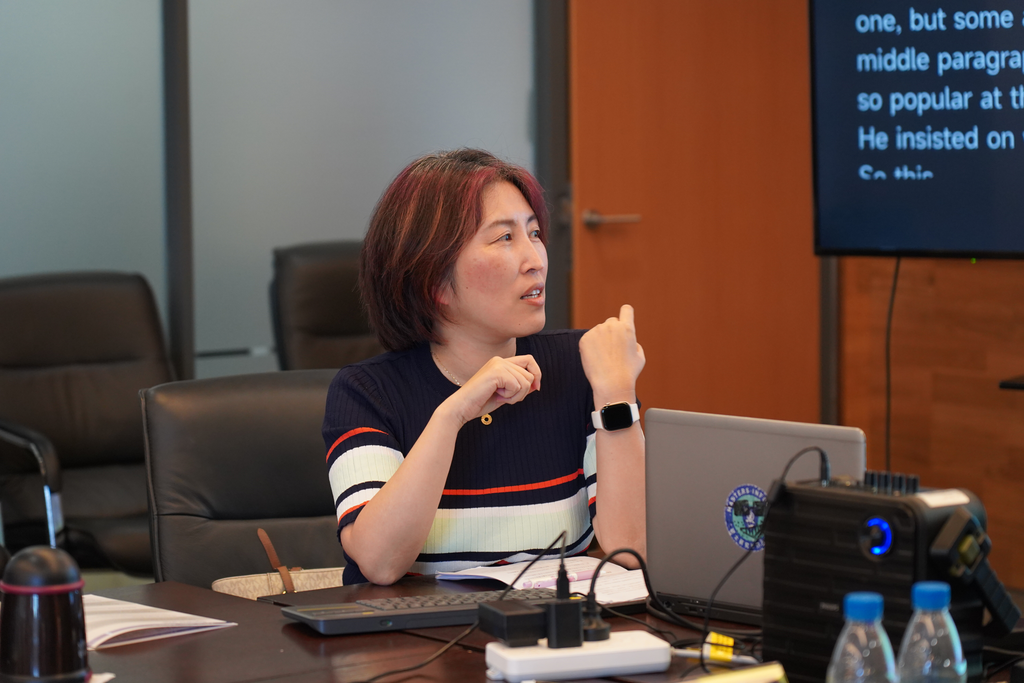
Chu Xidao
Celebrated novelist and web drama screenwriter Chu Xidao illustrated the powerful trend of fans evolving into co-creators, citing the transformation of “The Grave Robbers’ Chronicles” from fanfiction into a multibillion-dollar empire. “Fans are no longer just an audience; they are co-authors on platforms like Bilibili,” she stated, emphasizing how real-time feedback and secondary creations directly shape narratives and build value. “The line between creator and consumer has dissolved into collaboration,” Chu added.
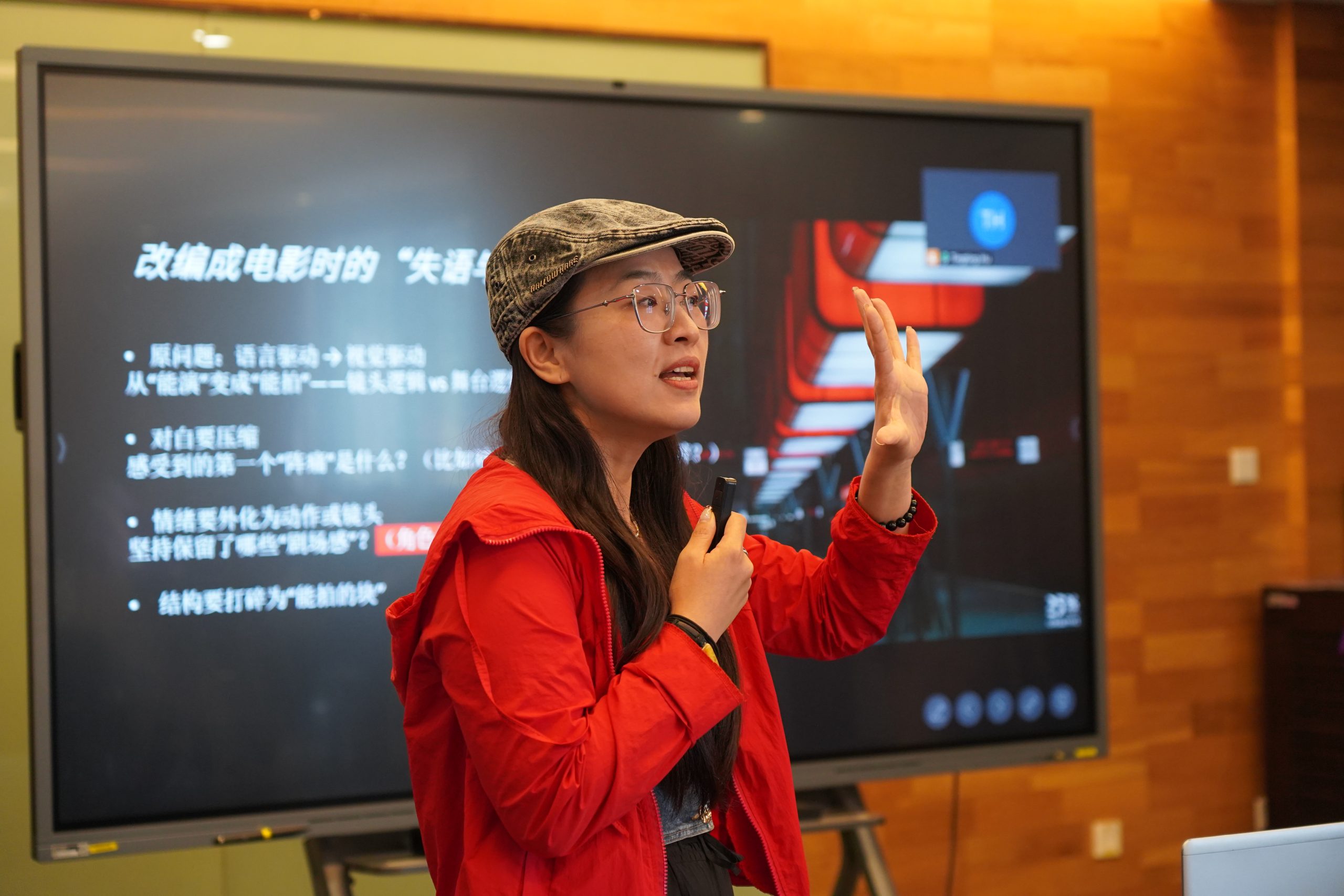 Wen Gu
Wen Gu
Playwright and producer Wen Gu observed that scripts, like those for her film “The Other Side of Monlam River,” are never truly finished but are continuously reshaped by directors, actors, and even weather conditions during production. She described scripts as “living energies reborn in different media,” urging writers to embrace uncertainty and maintain their voice.
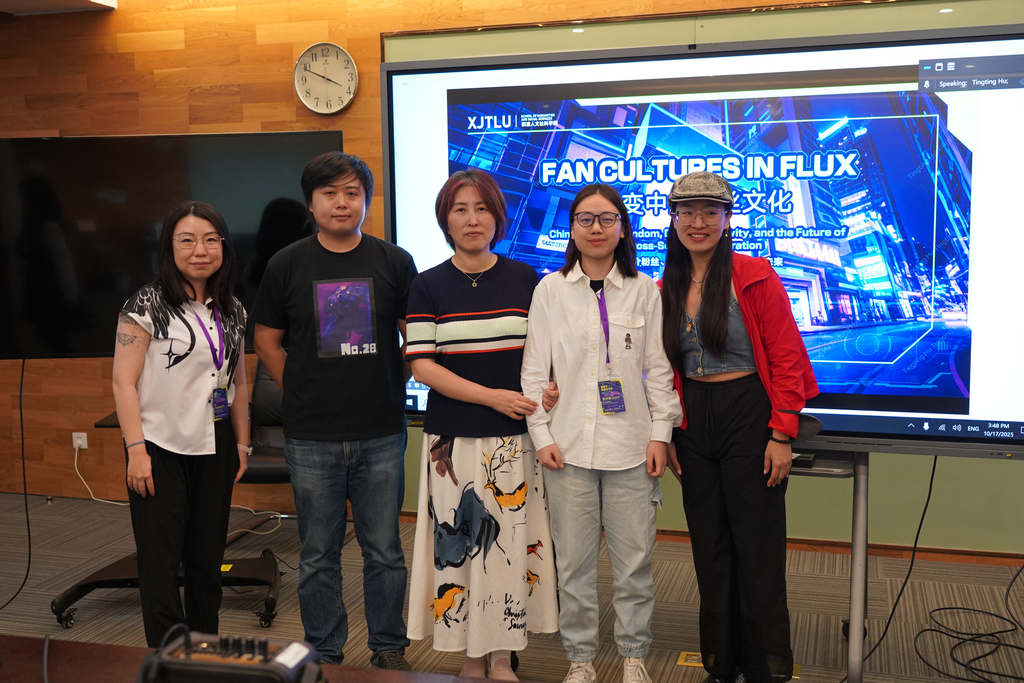
In a pre-symposium interview, Gu shared how her diverse international background and multifaceted professional roles have profoundly shaped her creative work. She explained that stepping outside oneself to embrace diverse perspectives not only makes creation more compassionate but also teaches the acceptance of imperfection, a realization she described as her most valuable creative growth.
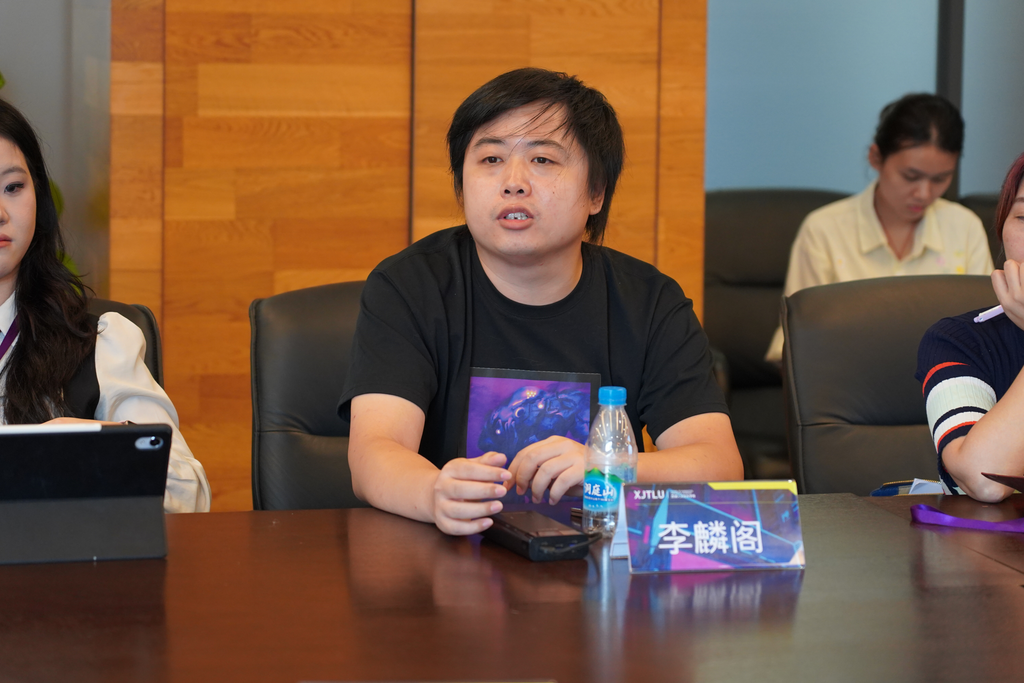
Linge Li
The global dimension of fan-centric creation was further explored by independent game developer Linge Li, who argued that authentic cross-cultural expression stems from “conviction rather than symbolic accumulation.” He positioned indie games as vital cultural experiments that foster uniquely dedicated and warm player communities.
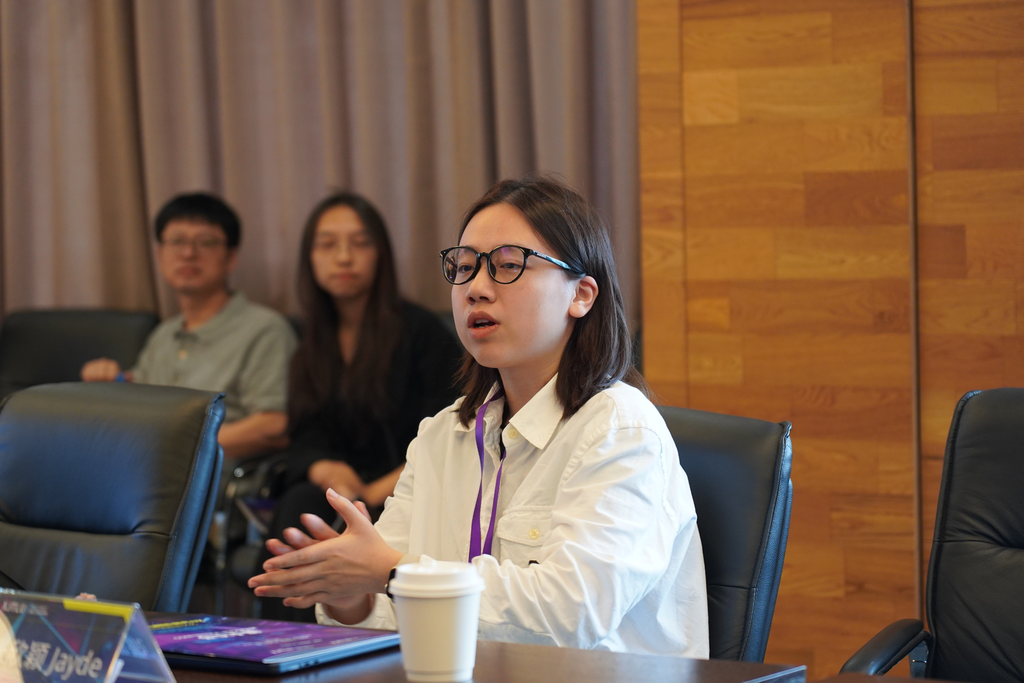
Jayde Xinying Zhang
Jayde Xinying Zhang, co-founder of MosuMosu, highlighted a core contrast in platform design: Japanese users value efficiency and copyright, while Chinese users prioritize “social interaction and de-commercialization.”
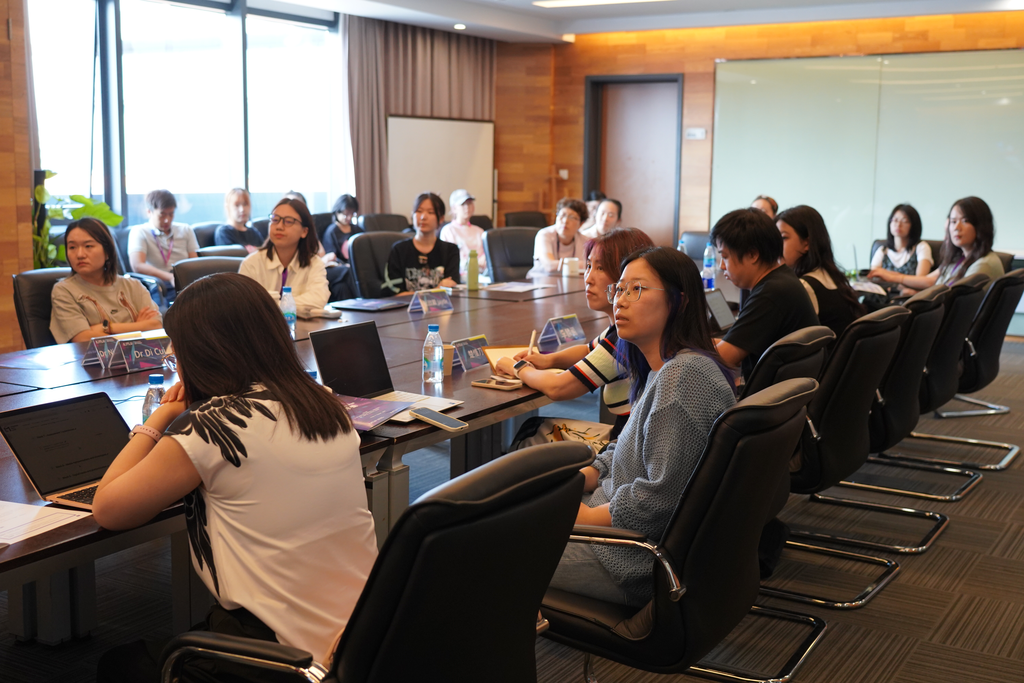
Reflecting on the symposium’s outcomes, Dr Hu noted: “The fandom community is a dynamic, vibrant, and complex entity. It embodies resistance and creativity, yet it also possesses a darker side.” To truly understand it, she suggested keeping pace with its evolution and applying critical thinking.
Inspired by her forthcoming book, she believes the symposium launches a broader vision to use her research network to foster ongoing academia-industry collaboration at XJTLU.
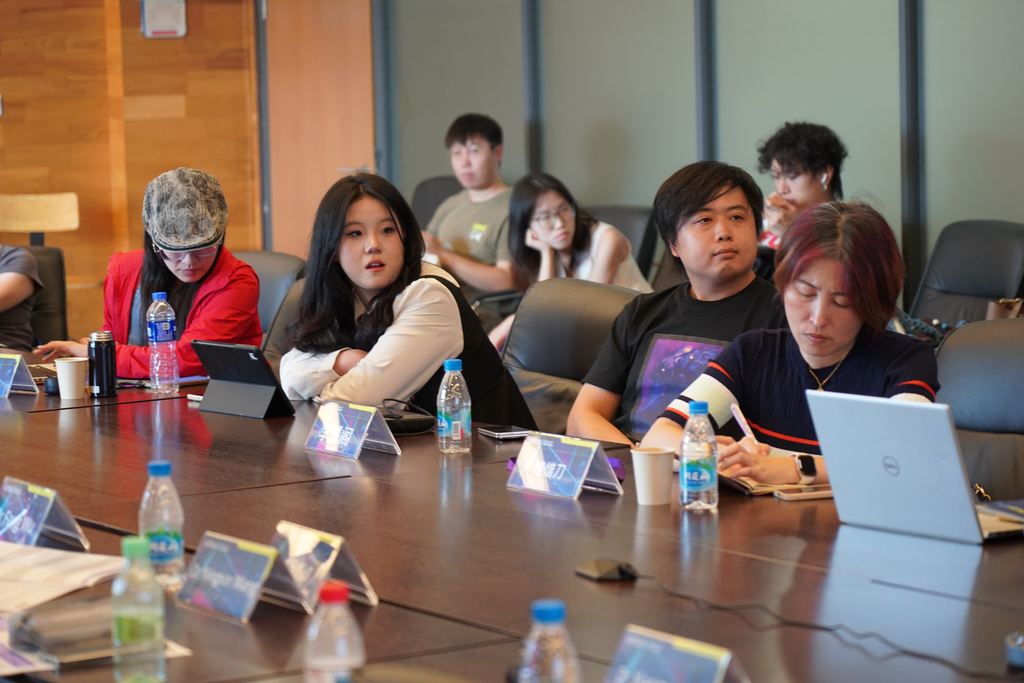
Story by VALERIA A. GALVAN SOTRES / DMC Newsletter.
With contributions from Sihong Zu (interview with Gu Wen) and Jiangyue Xi (creator forum content).
Courtesy of the scholastic journalism team, Department of Media and Communication, XJTLU
04 Nov 2025








